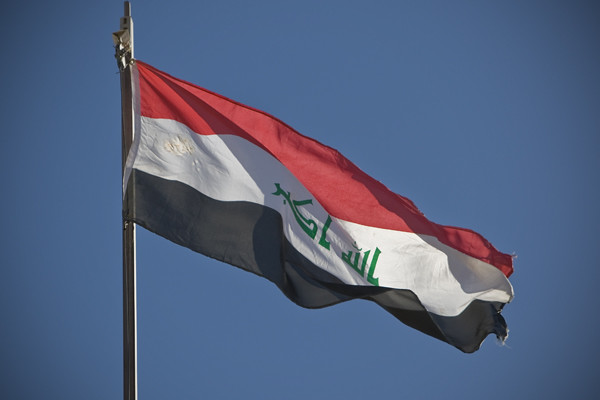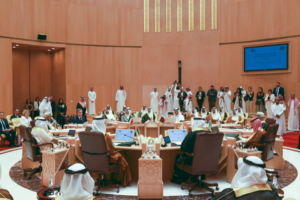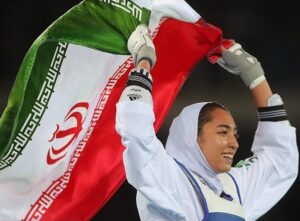I was sceptical when Iraq was first suggested as an intermediary for regional dialogue between Iran and Saudi Arabia. The fragmented nature of Iraqi politics means that the country has not had a cohesive, united and institutionalized foreign policy since the US-led invasion in 2003. Moreover, Iraq’s relations with its neighbours have been hindered by the reckless regional policies pursued during the Saddam Hussein era, the bitter legacy of Iraq’s invasion of Kuwait and the sectarian tensions that have characterized the post-Saddam period.
Iraq’s contribution to the recent thaw between Iran and Saudi Arabia – which, after years of talks, culminated in an agreement facilitated by China, announced in March 2023 – suggests that Iraq has successfully carved out a role for itself as a regional diplomatic broker.
My initial reservations were rooted in my work in track-two diplomacy between Iran and Saudi Arabia at the EastWest Institute (EWI) and later at the Stimson Center. I assumed that neither Iran nor Saudi Arabia would accept Iraq as a neutral facilitator. The history of Iraq’s relations with the Gulf region has been characterized by misunderstandings and misconceptions that have shaped both Iran and Saudi Arabia’s views of Iraq’s potential role in the region. The US-led invasion further strengthened Iran’s political, economic and intelligence influence in Iraq, while Saudi Arabia and other Gulf states remained far less influential in Iraq’s political and economic scene. Consequently, post-2003 Iraq became a fertile ground for sectarian and political proxy conflicts.
Traditionally, regional and international powers tend to prefer a country with a proven track record, such as Oman, to act as a neutral mediator. However, throughout 2018, in preparation for a project on Iraq and its neighbours, we at EWI and the Center for Applied Research in Partnership with the Orient (CARPO) held discussions with EU officials on the regional role of Iraq in the post-Islamic State (ISIS) era; these officials were supportive of the idea of Iraq as a mediator for regional dialogue. The EU saw this as an opportunity for Iraq to develop a strong and balanced relationship with all of its neighbours. This came after a rapprochement initiated by Prime Minister Haider al-Abadi and the influential Shia cleric Muqtada al-Sadr with Saudi Arabia and the United Arab Emirates (UAE) in 2017.
Tentative progress
I was thrilled to be part of the initiation of the ‘Iraq and Its Neighbours: Enhancing Dialogue and Regional Integration in West Asia’ project in early July 2019. The project was a joint effort between EWI, CARPO and the EU, and it aimed to bring together officials, experts and academics from Iraq, Iran, Saudi Arabia, Jordan, Kuwait, Türkiye and the EU. Its primary objective was to establish Iraq as an intermediary for regional dialogue, rather than a battleground for proxy conflicts. Throughout the project, participants identified specific areas for bilateral and regional cooperation in trade, energy, education, climate change, health and pandemic preparedness, as well as people-to-people exchanges. The project represented a two-year-long effort to promote dialogue and regional integration in West Asia, and to position Iraq as a crucial player in the region’s diplomatic landscape.
However, it was not until April 2021 that Iraq’s role as a mediator between Saudi Arabia and Iran began to take shape. The first in a series of talks took place in Baghdad, facilitated by the then Prime Minister Mustafa al-Kadhimi. The talks covered a wide range of topics, including regional security, political stability and economic cooperation. One key area of discussion was the ongoing conflict in Yemen, where Iran-backed Houthi rebels have been fighting against a Saudi-led coalition. Another topic of discussion was the recent attacks on Saudi oil facilities, which Riyadh has blamed on Iran. The talks also touched on issues related to the Gulf Cooperation Council (GCC), such as trade and investment, as well as the impact of US sanctions on the Iranian economy. Subsequent rounds of talks were held in Oman, with both sides expressing cautious optimism about the prospects for improved relations. In January 2023, Shahriar Heydari, the head of the National Security and Foreign Relations Committee in the Iranian parliament said, ‘the mediation that Iraq is now carrying out between the Saudi and Iranian sides has succeeded in bringing points of view closer and reducing differences between the two parties to levels that allow for the restoration of official relations’.
A number of factors contributed to Iraq’s suitability as a mediator. Firstly, a general trend towards de-escalation in the region created an environment that was conducive to Iraq’s nascent diplomatic agency. Secondly, despite Iraq’s weak governance and significant deficit in state sovereignty, the Kadhimi administration’s personal relationships with both Saudi Crown Prince Mohammed bin Salman and members of the Iranian establishment allowed the Iraqi government to capitalize on the regional environment and facilitate talks between Tehran and Riyadh. Thirdly, the youth-led protests in Iraq that started in October 2019 – which aimed to topple the political system, achieve social justice and boost national sovereignty – played a crucial role in transforming Iraqi society’s views on sovereignty. The fall of Adil Abdul-Mahdi’s government and the rise of Kadhimi were key outcomes of this movement.
Back to square one?
However, the volatility of Iraqi politics has been increasingly evident in recent years due to a series of significant events both inside and outside the country. Ongoing tensions between Iran and Saudi Arabia, coupled with Iran and Türkiye’s persistent violations of Iraq’s sovereignty, have highlighted the fragile nature of Iraq’s diplomatic efforts. The fragmentation among major Iraqi political parties, which are often aligned with powerful neighbouring countries, has made it difficult to develop a shared vision of relations with neighbouring states and prevented the establishment of an institutionalized foreign policy.
Moreover, Iraq’s structural weakness in exerting sovereignty has emboldened Iran and Türkiye to treat Iraq as their own backyard, as demonstrated by Iran and Türkiye’s respective attacks on opposition groups based in Iraqi Kurdistan. These violations of Iraq’s sovereignty undermine the country’s potential as a respected mediator and reinforce the notion of Iraq as a battleground for proxy wars.
Despite recent attempts to improve Iraq’s broader diplomatic standing, including two summits in Baghdad in 2021 that brought together regional leaders and the French president, progress to improve Iraq’s status as an intermediary has been slow. The actual impact of these events will depend on the political will, bureaucratic capacity and follow-up action to translate declarations of goodwill into practical policies and projects. Unfortunately, there is little evidence of progress since the conclusion of these summits, with only limited improvements in Iraq–Jordan relations, exemplified by the opening of a joint project for power grid connectivity set to become operational in 2023.
Track-two diplomacy: Developing ideas for ‘the day after’
To establish a more stable and respected role in regional diplomacy, Iraq will need to focus on building stronger institutions, exerting its sovereignty and seeking constructive relationships with its neighbours based on mutual respect and cooperation.
The analysis of Iraqi politics by mainstream sources often oversimplifies events to binary conflicts between Iran and the US, Iran and its Arab neighbours, and overlooks the agency of Iraqi actors. Through my track-two diplomacy work and involvement in the Iraq and Its Neighbours project, I have learned that the positions of Iraqi factions towards their neighbours, including Iran, are complex and nuanced. While further research and engagement with Iraqi stakeholders is necessary to confirm this observation, initial findings suggest that there is an emergence of a generation of leaders in Iraq from influential Shia factions aligned with Iran who are more pragmatic, open to dialogue and seek balanced ties with Iran.
However, given the weaknesses of the Iraqi state, its internal divisions and external interference, such pragmatic leadership may seem unrealistic. Moreover, predicting the future perspectives of these leaders is impossible as geopolitical and internal developments can cause shifts in their views. Nonetheless, due to Iraq’s strategic importance and impact on regional stability, there is a need to continue engaging these leaders on a track-two level.
Such unofficial engagement provides a unique opportunity to understand changing perceptions across generations and assess whether generational shifts can positively influence foreign policy and Iraq’s role in regional dialogue. At the moment, it is unclear what foreign policy the current prime minister, Mohammed Shia’ al-Sudani, will adopt or whether he possesses the capacity, contacts and skills to continue Kadhimi’s active mediation efforts. Furthermore, it is uncertain whether Saudi Arabia, the UAE, Jordan and Egypt will accept al-Sudani as a mediator.
In my experience, track-two diplomacy can generate ideas for ‘the day after’ when Iraqi and regional leaders have sufficient incentives and political will to translate agreements into concrete projects that benefit the region’s people. However, this is unlikely to result in immediate or quick policy changes, and it remains to be seen what the fate of Iraq’s nascent diplomatic agency will be, due to the lack of an institutionalized foreign policy.
This piece is part of an essay collection, Iraq 20 years on: Insider reflections on the war and its aftermath, that explores two decades of state-building in Iraq and the lessons to be learned.




